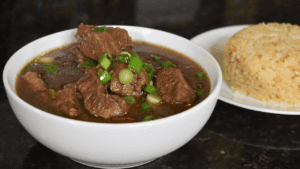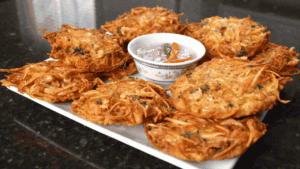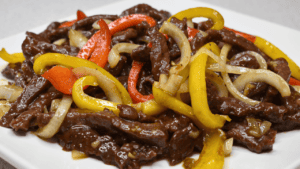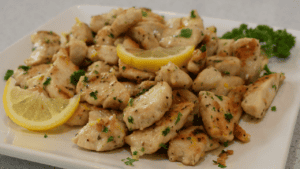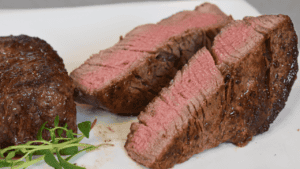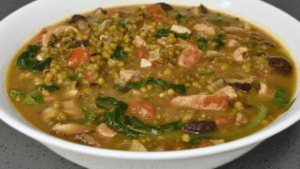Sautéed Garlic Asparagus
Sautéed garlic asparagus is a dish made by cooking asparagus spears in a pan with olive oil, minced garlic, salt, and pepper. The asparagus is sautéed until tender but still slightly crisp, and the garlic adds a flavorful aroma to the dish.
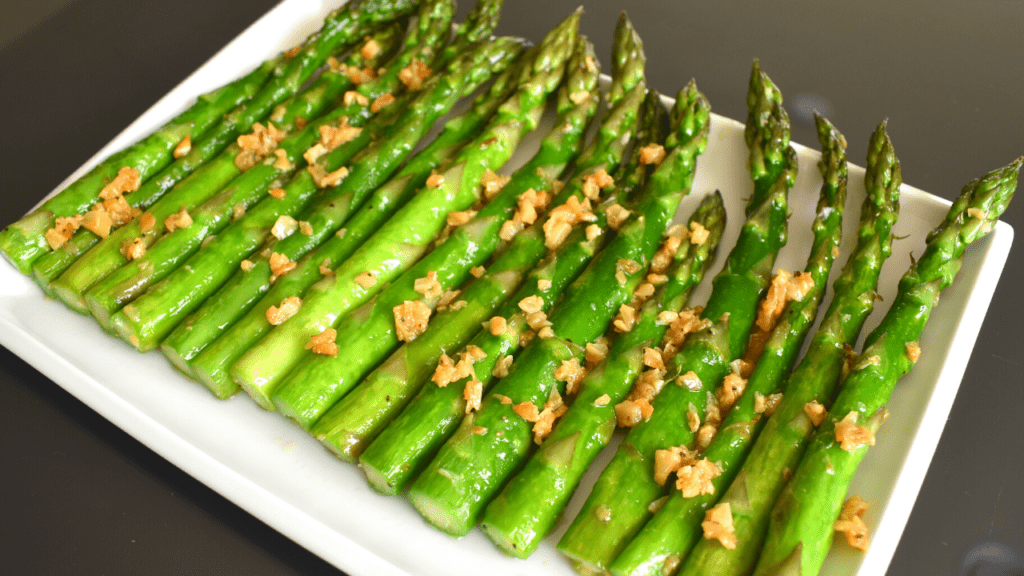
Delicious Sautéed Garlic Asparagus Recipe
Are you in search of a simple, yet flavorful dish that can elevate any meal with a burst of freshness? Look no further than sautéed garlic asparagus — a recipe that not only tastes delightful but also provides a myriad of health benefits. This long, green vegetable, beloved for its unique flavor profile, is a surefire way to impress your family and guests. In this post, we’ll walk you through creating a delectable sautéed garlic asparagus dish that’s perfect for home cooks, food enthusiasts, and anyone looking to take their healthy eating game up a notch.
The Allure of Asparagus
Why asparagus?
Before we jump into the sautéing action, it’s worth highlighting the draw of asparagus itself. Besides its vibrant color and pleasing shape, asparagus is a low-calorie vegetable packed with nutrients. Antioxidants, fiber, and an array of vitamins are just the beginning. It’s a versatile ingredient, complementing a variety of cuisines and styles. The tender texture of sautéed asparagus, combined with the bold flavor of garlic, is a match made in culinary heaven.
Savor the Aroma – Your Ingredients
Here’s what you’ll need for this simple sautéed garlic asparagus recipe:
- 1 tablespoon of olive oil, for cooking
- 4 cloves of garlic, minced
- 1 pound of fresh asparagus, woody ends trimmed
- 1 tablespoon of butter
- 1 teaspoon of salt
- 1 teaspoon of ground black pepper
- 1 tablespoon of water
Gather these items, and you’re just moments away from bringing an aromatic, satisfying dish to life.
The Sizzle and the Stir – Instructions for Success
It’s time to don your apron and step into the bustling kitchen. Follow these steps to sautéed garlic asparagus perfection:
Step 1: Set the Scene
Start by placing a large skillet on the stove, adjusting the heat to a medium setting. The key to a great asparagus dish is a hot pan to get that gentle char just right.
Step 2: Aromatic Awakenings
Pour the olive oil into the skillet, letting it heat up for a minute. Once that savory scent fills the air, add the minced garlic. Keep an eye on it; nobody likes burnt garlic!
Step 3: The Star of the Show
Introduce the asparagus to the pan. Make sure your asparagus is dry before it meets the heat — moisture will make for soggy sautéing.
Step 4: The Sauté
The goal is to sauté the asparagus, along with the garlic and a slathering of butter, for about 5 minutes. Stir occasionally to ensure an even cook. The asparagus should remain a vibrant green, with a slight tenderness.
Step 5: A Pinch of Seasoning
Once tender, season your asparagus with salt and pepper to taste. It’s amazing how a pinch of these simple spices can transform the dish.
Step 6: A Splash for Succulence
Should your asparagus start to stick or seem dry, add a splash of water to the pan. This will help to maintain just the right level of moisture.
Step 7: The Grand Finale
Remove the skillet from the heat, and carefully transfer your flavorful sautéed garlic asparagus to a serving plate. It should be a culinary masterpiece, ready to be savored.
Tips for Perfection – Enhance Your Dish
Here are a few additional tips to make your sautéed garlic asparagus truly shine:
- Lemon Zest and Juice: A drizzle of lemon zest and squeeze of juice just before serving can provide a zesty, fresh twist.
- Parmesan Sprinkles: A dusting of grated parmesan adds a rich, umami flavor that pairs beautifully with the garlic.
- Toasted Almonds: For a delightful crunch, sprinkle your asparagus with some lightly toasted almond slices.
A Green Dish, A Healthful Wish
Nutritional Nourishment
Sautéed asparagus is not only delicious but also a nutritional powerhouse. These green spears are a great source of B vitamins and vitamin C, which are essential for a healthy immune system. They’re also rich in folate, a nutrient important for cell growth.
A Heart-Healthy Hero
This vegetable is lauded for its heart-healthy benefits, thanks to its array of nutrients and the potential to support lower blood pressure. Plus, it’s naturally low in calories and sodium, making it a stellar choice for anyone aiming to improve their cardiovascular health through diet.
Get Saucy
Consider dressing your sautéed garlic asparagus with a homemade sauce. A simple mixture of balsamic vinegar, Dijon mustard, and honey can add depth and a touch of sweetness. Or a classic Hollandaise sauce for a touch of indulgence.
Audience Engagement – Share Your Success
We’d love to hear about your sautéed garlic asparagus adventures. Share your experiences, any tweaks you made, and your favorite pairings. Join the conversation and inspire others to cook with this remarkable ingredient.
Conclusion – A Recipe for the Simple and Satisfying
Whipping up sautéed garlic asparagus is a tangible step toward a healthier lifestyle without compromising on taste. This recipe aligns perfectly with goals of eating more veggies and home cooking. Plus, it’s so effortless that it can quickly become a regular in your roster of go-to meals.
Try this recipe for a delicious side dish that’s perfect for any meal, be it a family weeknight dinner or a special Sunday brunch. Its simplicity allows the natural flavors of asparagus to shine through, and its healthfulness will leave you feeling virtuous and satisfied.
Incorporate this garlic asparagus sauté into your cooking repertoire, and watch as it becomes a staple that your taste buds — and your body — will thank you for. Happy cooking!
Asparagus Frequently Asked Questions
Why you shouldn’t cut the ends off asparagus?
Cutting the ends off asparagus is not recommended because it can lead to waste and uneven cooking. The ends of asparagus can be tough, but they should only be removed if they are particularly woody or fibrous. Otherwise, you can simply trim the bottom inch or two of the stalks.
What cooking method is best for asparagus?
The best method for cooking asparagus depends on personal preference and the dish you are making. However, roasting or grilling tend to bring out more flavor in asparagus compared to boiling or steaming.
What is the best way to cook asparagus?
To roast asparagus, preheat your oven to 425 degrees Fahrenheit and place trimmed asparagus spears on a baking sheet. Drizzle with olive oil, season with salt and pepper, and bake for about 15 minutes until tender. For grilling, lightly coat trimmed spears with oil and grill over medium-high heat for about 5-7 minutes, turning occasionally.
Should asparagus be soaked in water before cooking?
Some people recommend soaking asparagus in water before cooking to hydrate them and enhance tenderness. However, this is not necessary if your asparagus is fresh; soaking may actually cause it to become waterlogged.
Should you boil asparagus before frying?
It is not necessary to boil asparagus before frying; you can simply sauté it in a pan with some oil until tender.
Should you snap asparagus before cooking?
There are differing opinions on snapping vs cutting off the ends of asparagus before cooking. Snapping involves bending each spear until it breaks naturally at its weakest point (usually where the tough part meets the tender). This method ensures that all pieces are evenly sized without any tough parts remaining. Cutting off the ends allows for more precision but may result in some wasted parts depending on how fibrous they are.
Why is my asparagus tough after cooking?
If your cooked asparagus turns out tough, there could be several reasons such as overcooking or using older/asparagine-rich stalks (which naturally become tougher).
Do you only eat the top of asparagus?
Yes, only eat the part of the asparagus that is tender and discard the rest.
What are 2 appropriate methods of cooking asparagus?
- Grilling – Grilling is a great method for cooking asparagus, as it imparts a smoky and slightly charred flavor to the vegetable. Simply brush the asparagus spears with olive oil and season with salt and pepper before grilling on medium heat for about 5-7 minutes.
- Roasting – Roasting is another popular way to cook asparagus, as it caramelizes the natural sugars in the vegetable and brings out its sweet and nutty flavors. Preheat your oven to 400 degrees Fahrenheit, toss trimmed asparagus spears in olive oil, salt, and pepper, then spread them out on a baking sheet and roast for 10-15 minutes.
Other ways to cook asparagus include:
- Steaming – This gentle cooking method helps retain the vibrant green color of asparagus while keeping it tender yet crisp. Place trimmed spears in a steam basket over boiling water for 5-7 minutes until they are bright green.
- Sauteeing – Asparagus can be sautéed quickly over high heat with some olive oil or butter until it is slightly charred yet still retains its crunchiness.
- Boiling – Although boiling can cause some loss of nutrients in vegetables, it is still an easy way to prepare asparagus if you’re short on time or don’t have access to other cooking methods. Boil trimmed spears in salted water for 3-4 minutes until tender but still firm.
What do you eat asparagus with?
Asparagus can be served by itself or paired with various dishes such as:
1) Grilled chicken or fish
2) Pasta dishes like fettuccine Alfredo
3) Quinoa bowls topped with roasted vegetables
4) Omelets or eggs Benedict
5) Salads with vinaigrette dressing
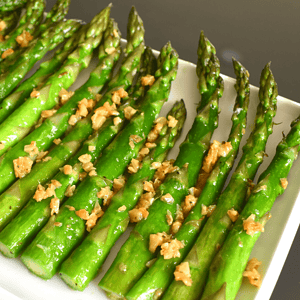
Sautéed Garlic Asparagus
Ingredients
- 1 tbsp olive oil
- 4 cloves garlic minced
- 1 lb asparagus
- 1 tbsp butter
- 1 tsp salt
- 1 tsp ground black pepper
- 1 tbsp water
Instructions
- Place a large skillet on the stove and turn the heat to a medium setting.
- Pour in the olive oil and allow it to heat up for a minute.
- Add the minced garlic to the skillet. Be careful not to burn it.
- Introduce the asparagus to the pan along with the butter.
- Sauté the mixture for approximately 5 minutes, ensuring that you stir it regularly to cook evenly.
- Season the asparagus with salt and pepper to suit your taste preferences.
- If the asparagus starts to stick to the skillet or seems dry, add a little water to maintain moisture.
- Once the asparagus is tender and well-seasoned, remove the skillet from the heat.
- Transfer the asparagus to a serving plate.
